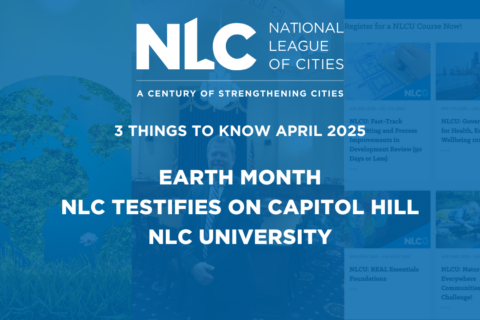By: Mark Shepherd, Mayor, Clearfield City, Utah and Chairman of the Finance, Administration and Intergovernmental Relations at the National League of Cities
By now, I am confident there isn’t an elected official in the United States who isn’t aware of the State and Local Fiscal Relief Funds (SLFRF) program created under the American Rescue Plan Act (ARPA). Like many of you, I was elated when I received the news that Congress, for the first time, was going to allocate funds directly to cities, towns and villages to use at their discretion so long as those uses adhered to Treasury guidelines. Washington had finally realized that the best way to ensure funds were used to address the needs created by the pandemic was to put those funds into the hands of the elected officials closest to the situation.
It took some time to get the Final Rule, so many municipalities chose to wait to obligate their funds.
The National League of Cities has gathered success stories for the use of the SLFRF funds from elected officials all over the country. We have seen cities use those funds for youth centers, homeless services, water projects and everything in between. Some were very creative and designed to have a lasting impact on the community and others simply recognized the budget shortfalls created by the pandemic and elected to use their funds for revenue replacement.
The Importance of Obligating ARPA SLFRF Funds
Unfortunately, many entities have not yet obligated their funds. The U.S. Treasury explained in the ruling that obligating is defined as “an order placed for property and services and entering into contracts, subawards, and similar transactions that require payment.’ See 31 CFR 35.3.”
So, you don’t have to spend the funds right now, but you do need to obligate them no later than December 31, 2024. As most of us are now beginning to prepare our 2024 budgets, you will want to ensure that you have the purposes for those funds included in your budgets.
From one elected official to another, my advice is to make sure you obligate these one-time funds to one-time projects. For cities like mine, a majority of the revenue comes from sales taxes. For others, it is coming from property taxes and yours may be a mixture of the two. In any case, we are seeing a shift in the economy. In Utah, our sales taxes have been at record highs for several years now. Each time we thought they were going to start coming down, they instead broke new records. Luckily, we have not used the SLFRF funds to patch holes in our personnel costs as we are finally seeing the sales tax bubble begin to leak. That is not the case for all cities. I have started to hear horror stories from elected officials who used the funds for ongoing personnel costs and are now forecasting major deficits in their 2024 budget forecasts.
Key Takeaways
If you are a local leader who had not yet obligated your funds, here are the key steps you should take:
- If you have not obligated your SLFRF funds, please get it done. Washington trusted cities, towns and villages with these funds, and we need to show them we can be trusted to get the job done.
- If you aren’t sure how to obligate your funds, don’t hesitate to reach out and ask your state league or NLC.
- When you do obligate your SLFRF funds, make sure you are not creating long-term liabilities with one-time funds. If you are funding a long-term project, ensure you have a funding stream to use after your ARPA funds have been spent.
- When you have obligated your funds, share your success stories with NLC and with your congressional delegation so they can see what local government is able to accomplish when they trust us with the funds.
Office Hours: ARPA SLFRF Assistance
Join NLC staff for American Rescue Plan Act office hours Tuesday and Thursday from 2:00 PM – 3:30 PM ET to help cities answer questions about obligations, reporting and other State and Local Fiscal Recovery Funds program questions. This series ends on December 14, 2023








